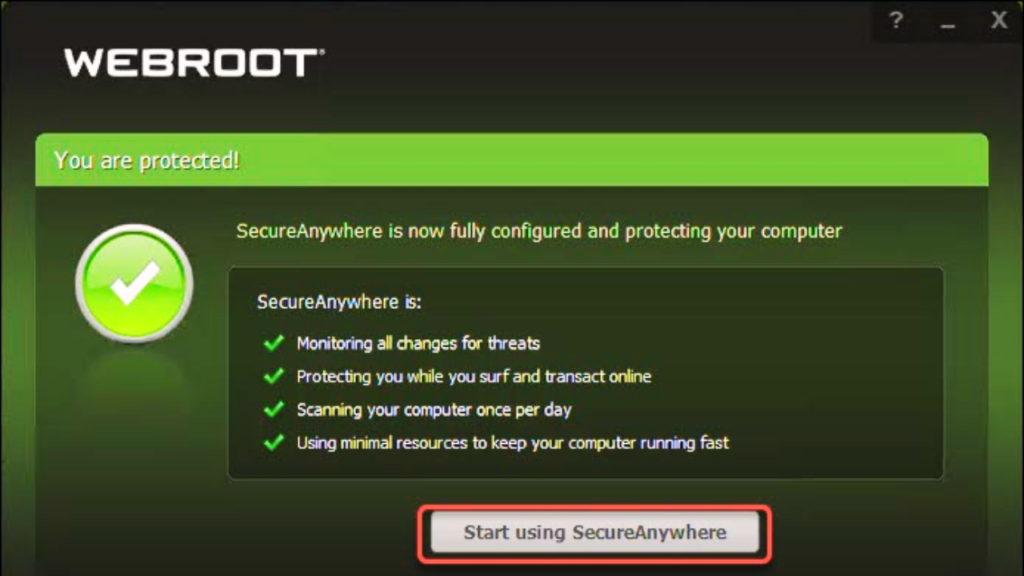In today’s digitally connected world, securing your devices from many online threats is paramount. Two prominent names in the cybersecurity industry, Kaspersky and Webroot, have earned their stripes in providing robust antivirus solutions. But when protecting your digital life, is Kaspersky better than Webroot? Are these two antivirus solutions essentially the same, or are there distinct differences that could influence your choice? In this detailed comparison, we’ll delve into the key aspects of both Kaspersky and Webroot to help you make an informed decision.
Kaspersky: The Cybersecurity Giant
Pros of Kaspersky
Powerful Malware Protection: Kaspersky’s antivirus engine boasts exceptional malware detection and removal capabilities. It consistently ranks high in independent tests, earning a reputation for effectively combating both known and emerging threats.
Comprehensive Security Features: Kaspersky offers an array of security features beyond basic antivirus protection. These include real-time scanning, web filtering, email protection, and even a VPN for online privacy.
User-Friendly Interface: Kaspersky’s user interface is intuitive, making it accessible to both tech-savvy users and beginners. It provides easy access to essential features and settings.
Cross-Platform Compatibility: Kaspersky supports various platforms, including Windows, macOS, Android, and iOS, ensuring that all your devices can be protected under a single subscription.
Regular Updates: Kaspersky consistently updates its threat database to stay ahead of new and evolving threats, keeping your devices secure.
Cons of Kaspersky
Resource Intensive: Kaspersky’s comprehensive security features can consume significant system resources, potentially affecting the performance of older devices.
Privacy Concerns: Kaspersky, a Russian-based company, has faced scrutiny regarding potential ties to the Russian government. While there’s no concrete evidence of wrongdoing, it’s a factor some users consider.
Webroot: The Lightweight Protector
Pros of Webroot
Minimal System Impact: Webroot is renowned for its lightweight nature. Its cloud-based approach minimizes the use of system resources, allowing your device to run smoothly even during scans.
Rapid Scanning: Webroot’s unique technology conducts scans quickly, thanks to its reliance on cloud intelligence. This means you will experience minimal slowdowns during scans.
Identity Protection: Webroot includes identity protection features that help safeguard your personal information and financial data from online threats.
Cross-Platform Support: Webroot is compatible with Windows, macOS, Android, and iOS devices, ensuring comprehensive protection across your digital ecosystem.
Privacy-Focused: Webroot is known for its strong stance on user privacy. It doesn’t collect unnecessary data, making it a solid choice for privacy-conscious users.
Cons of Webroot
Less Robust Feature Set: While Webroot excels in lightweight protection, it may not offer as many additional features as some other antivirus solutions. Some users may miss advanced tools like a VPN.
Mixed Test Results: While Webroot’s unique cloud-based approach is praised for its efficiency, it has received mixed results in independent tests compared to traditional antivirus engines.
Google’s Privacy Sandbox is Shaping the Future of Browsing
Is Kaspersky Better Than Webroot?
The answer to whether Kaspersky is better than Webroot or vice versa largely depends on your specific needs and preferences. If you prioritize robust malware protection, and a comprehensive feature set, and are willing to manage potential resource consumption, Kaspersky could be the better choice. On the other hand, if you value lightweight performance, rapid scanning, and privacy-conscious practices, Webroot might be more suitable for you.

Is Webroot the Same as Kaspersky?
No, Webroot and Kaspersky are not the same. While both are antivirus solutions designed to protect your devices from online threats, they employ different technologies and offer distinct features. Webroot is known for its lightweight, cloud-based approach, while Kaspersky provides comprehensive security features and a reputation for strong malware protection.
Conclusion
In the Kaspersky vs. Webroot showdown, there is no one-size-fits-all answer. Your choice should align with your unique requirements and priorities. Assess factors such as the level of malware protection, system resource usage, additional features, and your budget to determine which antivirus solution best suits your digital protection needs.
Both Kaspersky and Webroot continually update their offerings to stay ahead of emerging threats. Whichever you choose, remember that regularly updating your antivirus software and practicing safe online habits remain essential for maintaining a secure digital environment.
Guaranteed Success: How to Find Bugs in a Website?
FAQs
Yes, Kaspersky offers antivirus solutions for Mac computers. They provide comprehensive protection against malware and other online threats specific to Mac operating systems.
Webroot does not offer a traditional free version of its antivirus software. However, it provides a 14-day free trial for users to experience its full range of features before committing to a subscription.
It’s generally not advisable to install multiple antivirus solutions on the same device, as they can conflict with each other and potentially cause system issues. It’s best to choose one reliable antivirus program that suits your needs.
Yes, both Kaspersky and Webroot provide antivirus solutions for mobile devices. They offer protection against mobile-specific threats, such as malicious apps and mobile phishing.
Both Kaspersky and Webroot have robust ransomware protection features. They can detect and prevent ransomware attacks, helping to safeguard your files and data from encryption by malicious software.
The pricing for Kaspersky and Webroot antivirus solutions can vary depending on factors such as the number of devices you want to protect and the level of features included. It’s advisable to visit their official websites to view current pricing and available packages to determine which fits your budget and requirements.
“Better” is subjective. While Kaspersky is among the top-tier antivirus solutions, others like Bitdefender, Norton, and McAfee are also highly regarded. The best choice often depends on individual preferences, needs, and system compatibility.
Webroot has its strengths, especially its lightweight design. However, other antiviruses like Kaspersky, Bitdefender, and Norton are often recognized for more comprehensive protection in various independent tests. The ideal choice is based on specific requirements.
No, Webroot and Kaspersky are distinct companies offering different antivirus and cybersecurity solutions.
No, Webroot is an American company founded in Colorado. Kaspersky, on the other hand, is a Russian company.






0 Comments